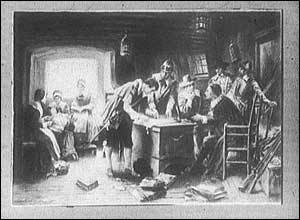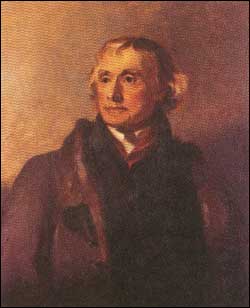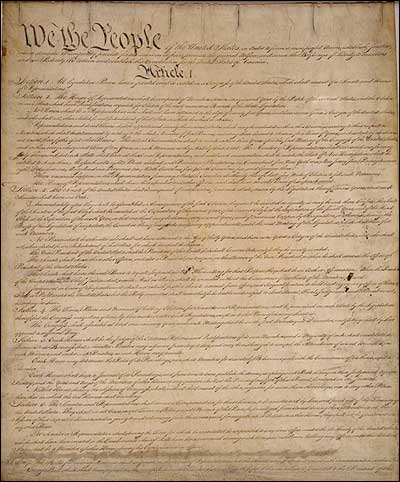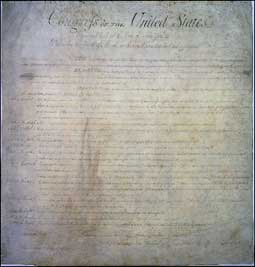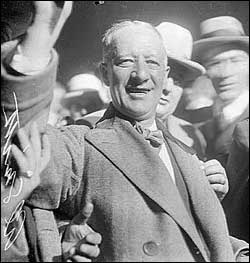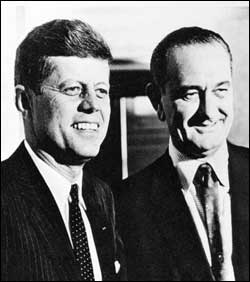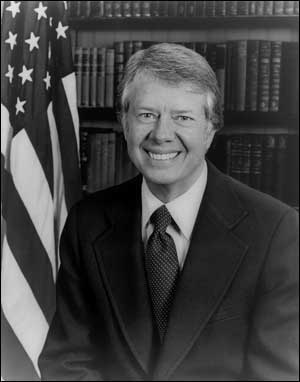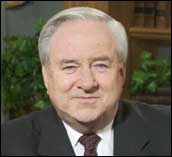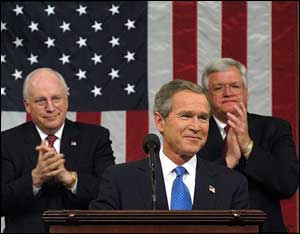Today’s primaries drew a final tide of delegates to Barack Obama’s camp that, according to the Associated Press, has put him over the top. Obama will be the first person of color in American history to be a major party’s presidential nominee. (InTheFray’s Bob Keeler called it.) As far as I’m aware, he’s also the first person of color to be chosen as a major party’s nominee for the chief executive of any Western government.
So, what next? Obama has to choose his running mate, and there’s great pressure coming from the Clinton camp — reportedly from Bill Clinton himself — to put Hillary Clinton on the ticket.
There’s a chance that might happen. When his campaign began in Springfield, Illinois, in February of last year, Obama consciously put on the mantle of Abraham Lincoln. From the Old State Capitol building where Lincoln delivered his "House Divided" speech, Obama evoked that past in his 21st-century call to bring the nation together and end political partisanship. Again, in his victory speech today in St. Paul, Minnesota, Obama quoted Lincoln twice, referencing the Gettysburg Address and calling for America to restore its image as the "last best hope on Earth." Now that he has secured the nomination, Obama may continue to walk in Lincoln’s steps by choosing a cabinet — and a vice president — from among his political opponents.
As Doris Kearns Goodwin writes, Lincoln passed over the traditional crowd of yes-men in favor of powerful rivals like Salmon P. Chase and Edwin M. Stanton (a man who once called Lincoln a "long-armed gorilla") in forming his cabinet. It was an audacious move that not only succeeded in quelling factionalism in the party, but also proved Lincoln’s mettle as the kind of confident leader who could lie down with lions and, in the end, win them over with his magnanimity and the strength of his convictions. (Stanton, in fact, grew to admire Lincoln and is credited with saying upon his death the famous lines, "There lies the most perfect ruler of men the world has ever seen … Now he belongs to the ages.") In spite of all the bad blood spilled on the campaign trail, perhaps Obama will likewise rise to the occasion and make peace with his fiercest opponent, Clinton.
My sense, though, is that it’s not likely to happen. Politics today operate on a different order of magnitude than they did in Lincoln’s time, and the huge, clanking campaign machine that turns politicians into presidents today has an inertia of its own. Lincoln, the obscure legislator from the Illinois backwoods, faced a different kind of pressure than Obama, the man at the center of a fundraising and pundit juggernaut. Obama may be willing to consider Clinton, but his coterie of advisers and legions of supporters are probably less forgiving. The race for the nomination has bruised too many egos, and ego is the currency of the political class surrounding every candidate. Beyond that, there’s also the sense that Clinton represents an old guard that stands in the way of Obama’s call for change.
I think Obama will move in one of two directions for his vice-presidential pick. He will choose someone with a military background who will give his ticket a command-in-chief gravitas that can compete with John McCain’s experience and win over older voters skeptical of his candidacy. (Someone along the lines of Wesley Clark comes to mind.)
The other likely course of action would be to choose a woman as a running mate. Clinton struck a vital chord in American politics with her candidacy, and the millions of voters inspired by the prospect of a woman as president offer the key to victory in November. It’s high time that a woman was in the White House, and though the vice presidency is the equivalent of a silver medal, it still means ascending the winner’s dais. If Clinton is not Obama’s pick, then he can at least defuse much of the resentment — and up the historical ante — by choosing another woman. A unbeatable ticket would be a combination of Obama and a moderate Republican senator like Olympia Snowe or Susan Collins, though that kind of bipartisanship would have been tough for even Lincoln (Snowe and Collins, for the record, support McCain), not to mention a slap to the face of Clinton’s supporters. But a running mate from the ranks of Democratic women governors or senators could also serve Obama well in the general election, especially if she comes from a swing state such as Michigan, Minnesota, or Missouri.
Of course, there’s still a chance that Obama will unite the Democratic house by choosing Clinton. If so, he will be following the lead of another tall, skinny legislator from Illinois.
Victor Tan Chen Victor Tan Chen is In The Fray's editor in chief and the author of Cut Loose: Jobless and Hopeless in an Unfair Economy. Site: victortanchen.com | Facebook | Twitter: @victortanchen
- Follow us on Twitter: @inthefray
- Comment on stories or like us on Facebook
- Subscribe to our free email newsletter
- Send us your writing, photography, or artwork
- Republish our Creative Commons-licensed content

